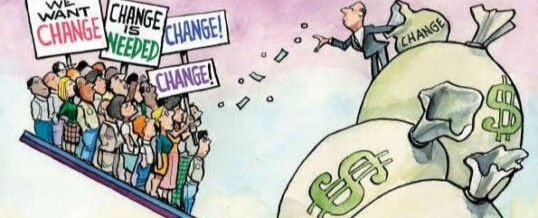
McLeod Group blog by Lauchlan T. Munro, March 26, 2025
Here is a sentence no one could have written in the 1980s: “Canada’s political parties and provincial governments are united in supporting free trade with the United States”. The 1980s featured a ferocious debate on whether free trade with the US would mean deindustrialization of the True North and perhaps even the end of Canadian nationhood or the beginning of a golden era of prosperity for all. That yesteryear’s fierce controversy has become today’s solid orthodoxy should cause us to pause and ask, “did we get this right?”
The 1989 US-Canada Free Trade Agreement, later expanded to include Mexico in 1994, was part of a global trend in public policy in the 1980s, 1990s and 2000s that included smaller government, lower taxes, privatization of government enterprises, deregulation and free(r) international movement of people, services and goods. Other aspects of this policy package are less often remarked on, notably the growing tolerance for economic inequality.
This policy trend coincided with the “emergence” of the newly industrializing countries (NICs) like Brazil, China, Mexico, Malaysia and Turkey. The 1990s also brought the IT revolution and the birth of the Internet. These trends reinforced each other, as when deregulation and advances in technology made it cheaper to move people and goods between countries.
The impacts of these overlapping changes were cumulatively enormous. In a single generation in the NICs, hundreds of millions of peasants moved to the cities and became industrial and service workers – and consumers. The rate of absolute poverty in many developing countries, mostly in Asia, fell dramatically.
In Western Europe and North America, the effects were quite different. People who were geographically mobile and could upskill themselves into IT, finance or high-end services prospered. Those who could not move or upskill faced a different fate: stagnant real wages, increasingly precarious employment in non-union workplaces, and rustbelt communities in decline. The only palliative was the flood of cheap goods imported from “emerging economies”, which helped keep inflation low.
Combined with tax codes that became markedly less progressive over time, the result was skyrocketing rates of economic inequality. The ratio of CEO-to-typical-worker compensation rose from 20:1 in 1965 to 59:1 in 1989 and 339:1 in 2021. The stagnation at the bottom of the income distribution and the rise at the top were closely related, as many low-wage jobs moved offshore and the after-tax return on investment for niche skills rose. Intergenerational upward social mobility in the US, once the centrepiece of the American Dream, began to lag behind previously sclerotic Europe.
Worse still, the generations-long rise in American life expectancy stalled. Even after stripping out COVID-related excess mortality, life expectancy in the US has been falling in recent years. Among men, most of this fall is attributable to “deaths of despair”, due to alcohol, drug overdoses, suicide, violence and metabolic disorders.
Nowhere is this phenomenon better depicted than in US Vice-President J.D. Vance’s memoir, Hillbilly Elegy. The subtitle tells it all: A Memoir of a Family and Culture in Crisis. It is a wrenching tale of alienation, addiction, precarity and violence. One of Vance’s most telling comments is about his hillbilly family’s interactions with people speaking with the “television accent”: the lawyers, doctors, social workers, teachers, judges and journalists whose incomprehension and condescension were so galling.
I do not pretend to understand Vance’s pivot from fervent opponent of Trump to Trump’s apparently loyal Vice-President. Nor can I condone Vance’s alliance with Trump, whose racism, sexism, xenophobia and LGBTQ-phobia are ethically deplorable and politically corrosive.
But that does not mean that Vance and Trump aren’t onto something. The globalized free-trade and smaller-government agendas of the 1980s, 1990s and 2000s wreaked havoc on the working class in America and other rich countries. The working class has now figured out that the system is rigged against them. Trump and his billionaire allies are merely exploiting the resulting anger and frustration for their own benefit.
And the problem goes deeper. Since the 1980s, centre-left political parties in the West have relied increasingly on votes and funding from the beneficiaries of globalization, the professional and upper classes, the people with the “television accent”. Spurred by postmaterialist values, these people often favour human rights, anti-discrimination, and environmental protection and they fund worthy charities. However, most of this “Brahmin left” also favours free trade and low taxes and refuses to talk about economic inequality. And they can be incredibly condescending to the working class, rural folk and people from “flyover” country. Remember Hillary Clinton’s “basket of deplorables” and Joe Biden’s “garbage”?
Back to Canada and free trade. Trump’s tariffs will, of course, be economically destructive in the short-to-medium run. The new willingness of a superpower to shred international law likely marks the end of the era of the rules-based international order and globalized free trade.
Faced with this new reality, the reflex of Canada’s political elites has been to try to shore up the old system. That, in my view, is understandable – but wrong. The economic policy model promoted by all governing parties in Canada since the 1980s has served some of us well, but not others. Huge income inequality, combined with weak regulation and a perverse tax system that taxes earned income more than capital gains, has encouraged real estate speculation and driven up the price of housing. The low-tax agenda has starved our schools, health systems, infrastructure and armed forces of funds. Moreover, free trade has left our nation dependent on the US and vulnerable to the whims of the new Washington.
It is time to rethink our broken economic model. But that is a subject for part 2 of this blog, to be published on March 27, 2025.
Lauchlan Munro is Full Professor in the University of Ottawa’s School of International Development and Global Studies. Before joining uOttawa in 2012, he worked for Canada’s International Development Research Centre, UNICEF and the Royal Government of Bhutan. Image: The Economist.
